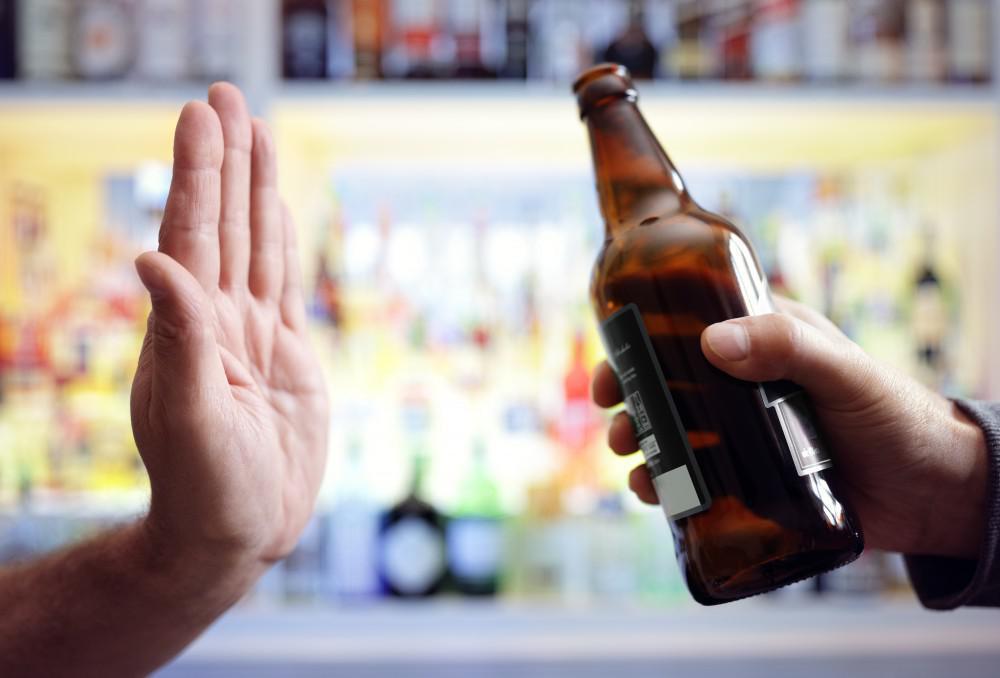
5 Tips for Staying Sober
You’ve done the work to become clean and sober, and you want to do what you can to stay that way. Here are five great tips that will help you safeguard your freedom from a substance use disorder.

The National Institute on Alcohol Abuse and Alcoholism conducted a survey in 2019 that estimates there are nearly 15 million people with an alcohol use
disorder in the United States. The odds are fairly good that this number is low, especially after the isolation of the recent pandemic.
Whether your alcohol use flared during the pandemic or it’s been building for some time, you suspect that you might be an alcoholic.
Alarmingly, only 10% of the identified alcoholics in the 2019 survey were seeking help for their problem, and the team here at Northview Wellness wants to
ensure that you’re one of them.
In the following, we explore some of the more common signs of alcoholism and how we can help you reclaim your life.
There’s no single checklist when it comes to whether or not you’re an alcoholic. For example, many people believe alcoholics are people who drink every day, but this isn’t always the case. Some alcoholics only drink on weekends, but when they do, they have no control over their drinking.
That said, there are some common attributes of alcoholism, which include:
To give you an idea about how this might all tie together, perhaps you wake up groggy and vow that you will not drink that day. As the day wears on, you feel
worse, your hands begin to shake, and you crave a drink. All too soon, your brain convinces you that you just need one drink to set things straight. Before you
know it, you’ve poured a drink, then a second, and then a third. And this same cycle happens the next day.
Of course, people may have different scenarios, but there are always signs of addiction and dependence like those we describe above — the lack of control, the brain that convinces you into drinking, and the physical withdrawal symptoms when you don’t drink.
If some of what we describe above sounds all too familiar, we can help. Our first step is to detox you safely from alcohol. Quitting cold turkey can be very
dangerous if you’ve been drinking large amounts for some time and your body has become dependent. Through our medical oversight, we can supply you with
the resources you need to detox safely and with as few side effects as possible.
Once you’re detoxed, we can discuss how you want to move forward, as the addiction side of the equation can still be strong. For example, we can place you
on medication-assisted treatment, such as naltrexone, to curb cravings and prevent relapse moving forward.
We also recommend that you get involved with support groups, and we provide comprehensive recovery support services, including counseling, nutrition, and
relapse prevention education.
To get on the road to a life that isn’t overshadowed by alcoholism, please contact our office by phone or email to set up a consultation.

You’ve done the work to become clean and sober, and you want to do what you can to stay that way. Here are five great tips that will help you safeguard your freedom from a substance use disorder.

The connection between a substance use disorder and a mental health issue is a strong one, as the nearly eight million Americans who have a co-morbidity prove. When this occurs, treating both issues is paramount.

Addiction is a chronic disease that requires constant vigilance and good management. When a person falls short, relapse can occur. If you’re worried that a loved one has relapsed, here are some signs to look out for.

The rise in availability of telehealth services has been great news for those who need (or would prefer) to receive quality health care from the comfort of their own homes. These services also extend to substance use disorders.

Whether you’ve tried to break your opioid addiction before or this is your first attempt, why not greatly increase your chances of success with Sublocade®? Here’s a look at how Sublocade can ease your recovery journey.

You’ve had a front row seat to your partner’s substance use disorder, so you’re, understandably, relieved when they announce they’re going to quit. The withdrawal and detox process can be tough and here’s how you can help.